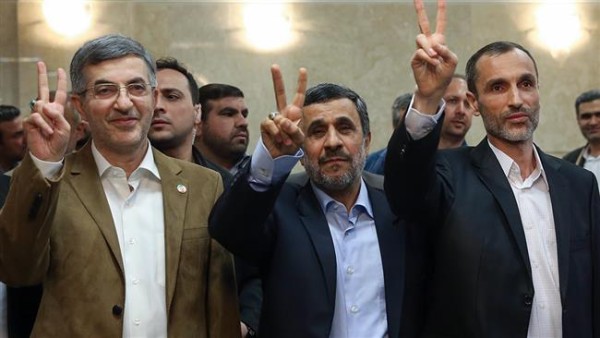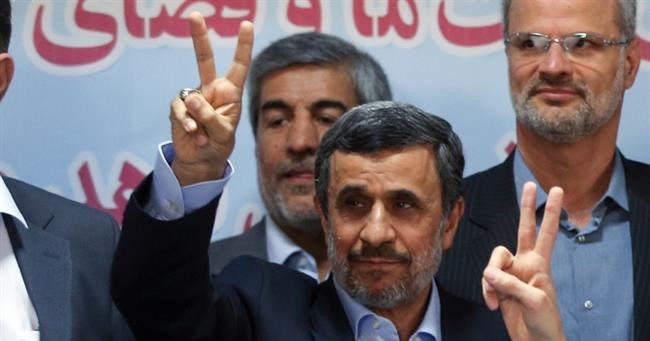The Islamic Republic of Iran’s 12th Presidential election formally opened on Tuesday, with hopefuls able to register their candidacies.
UPDATE 1100 GMT: Former President Mahmoud Ahmadinejad has sprung a surprise by registering his candidacy for May’s election.
Ahmadinejad, President from 2005 to 2013, was told by the Supreme Leader in a series of meetings last summer that he should not run. Having won re-election in 2009 in disputed circumstances, spurring millions of Iranians to protest, he was beset by serious economic problems, allegations of corruption, and disputes with other factions — include Ayatollah Khamenei — in his second term.
After Khamenei’s declaration, the former President had said “no plans to partake in the polls”. It was thought that he would stand behind the candidacy of his former Vice President, Hamid Baghaei.
Baghaei also registered on Wednesday. The two men were accompanied by Ahmadinejad’s controversial Chief of Staff, Esfandiar Rahim-Mashaei, who joined them in holding up linked hands and shouting, “Viva spring, Viva Iran”.

The Guardian Council could still block both Ahmadinejad and Baghaei.
ORIGINAL ENTRY: Dozens of people are likely to file papers, but the May 19 contest is expected to be between centrist President Hassan Rouhani and the principlist Ebrahim Raisi.
The Guardian Council will vet each applicant. The vast majority will be rejected for not fulfilling criteria such as prudence and aptitude for leadership duties, adherence to Islam, and belief in the Islamic Republic’s principles.
The Council is also likely to use those criteria disqualify those about whom it has political objections. Rouhani won a surprise victory in 2013, despite the Council’s attempt to limit the election by banning his mentor, former President Hashemi Rafsanjani.
Raisi, a former Attorney General who is now custodian of the influential religious organization Astan Quds Razavi, was selected last week by a coalition of conservatives and hardliners from among 50 hopefuls, including Tehran Mayor Mohammad Baqer Qalibaf.
The conservative-hardline bloc is hoping to avoid a repeat of 2013, when they failed to agree on a single standard-bearer. Instead, three candidates — Qalibaf, the Supreme Leader’s chief advisor Ali Akbar Velayati, and chief nuclear negotiator Saeed Jalili — turned on each other and split their votes, with Rouhani winning a first-round majority.
The economy is likely to be the dominant issue in the campaign. Rouhani is upholding the July 2015 nuclear deal with the 5+1 Powers as an achievement leading to economic recovery, after years of stagnation and even negative growth. Inflation has been reduced from more than 40% to single digits, and the IMF is projecting an increase in GDP of about 6% in 2016-2017.
The President’s opponents will contend that Iran is still struggling with employment, productivity, and investment amid ongoing US sanctions. The Supreme Leader has also put pressure on Rouhani, challenging the Government over supposed weakness towards Washington and declaring a “Resistance Economy” seeking self-sufficiency.
TOP PHOTO: President Hassan Rouhani at a news conference in Tehran on Monday

